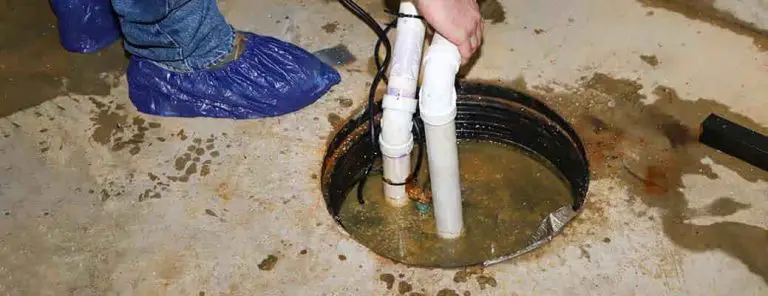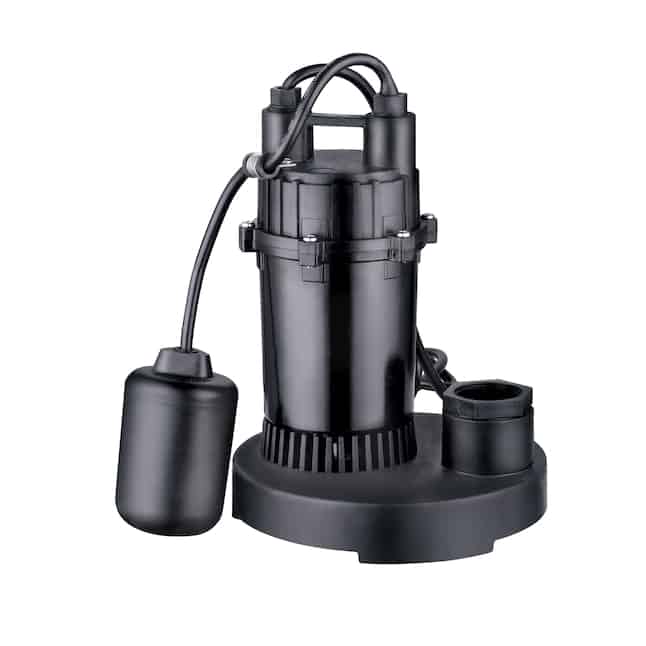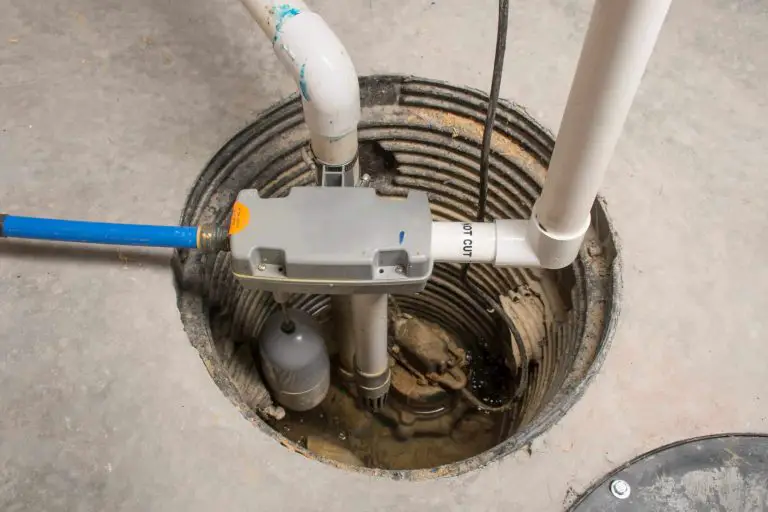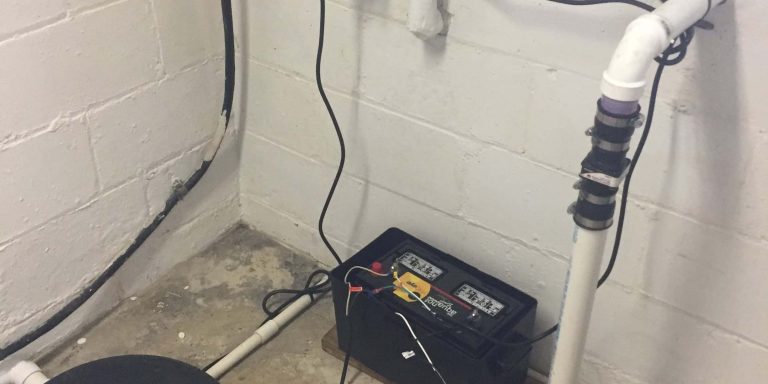Can 4 Wire Be Used to Connect Sump Pump
A sump pump is a device that is used to remove water from an area. The most common use for a sump pump is to remove water from a basement or crawlspace.
A sump pump can also be used to remove water from other areas, such as pools, ponds, and sewage systems. There are two types of sump pumps: submersible and pedestal.
Submersible pumps are designed to be placed in a pit or well that is below the level of the area that needs to be drained. Pedestal pumps are designed to be placed above the ground.
4 wire sump pumps are not as common as 3 wire sump pumps, but they can be used in some instances. The fourth wire is typically used for a ground wire, but it can also be used to connect the pump to a control panel or other device.
There are a few things to keep in mind when using a 4 wire sump pump: 1. Make sure that the fourth wire is properly grounded.
This is essential for safety and proper operation of the pump. 2.
Be aware that some codes may require the use of a three-wire sump pump in certain situations. Check with your local building code office to see if this is the case in your area.
3. When connecting the pump to a control panel or other device, make sure that all connections are made correctly and that all wires are secure. loose or improperly connected wires can create hazards and cause damage to equipment.
Sump Pump and Electrical
How to Connect Submersible Pump Wires
If you need to connect a submersible pump to an electrical outlet, there are several things you need to take into consideration. The first is the voltage of the pump.
Most submersible pumps operate on either 115 or 230 volts. If your pump is 115 volts, you will need to use 14-gauge wire.
If your pump is 230 volts, you will need to use 12-gauge wire. The second thing you need to consider is the amperage rating of the pump.
This is usually stamped on the side of the motor housing. Make sure that the circuit breaker or fuse that you use is rated for at least this amount of amperage.
To connect your submersible pump wires: 1)Cut two lengths of wire, using either 14- or 12-gauge depending on the voltage of your pump. Strip 1/2 inch of insulation off each end of both wires using a wire stripper tool.
2) Connect one end of one wire to one terminal on the pressure switch using a screwdriver. Then connect one end of the other wire to one terminal on the capacitor using a screwdriver (make sure that you observe polarity!). 3) Finally, twist together the free ends of both wires and secure with a twist-on connector (or similar).
Outdoor Sump Pump Electrical Connection
An outdoor sump pump is a great way to keep your basement dry. However, before you can use your new sump pump, you need to properly connect it to an electrical outlet.
This may seem like a daunting task, but with a little bit of planning and some basic knowledge of electrical wiring, you can easily get your sump pump up and running. The first thing you need to do is find an appropriate electrical outlet for your sump pump.
It’s important to make sure that the outlet is weatherproof so that moisture doesn’t cause any damage. Once you’ve found a suitable outlet, you can start connecting your sump pump.
If you’re using an extension cord, be sure to use one that is heavy duty and rated for outdoor use. Also, make sure that the cord is long enough to reach from the outlet to the location of your sump pit.
Once the extension cord is in place, you can plug it into the outlets on both the front and back of the sump pump. If you’re not using an extension cord, you’ll need to wire the outlets yourself. First, connect the black wire from the power supply to the black wire on the back of the sump pump.
Can You Run a Well Pump Without a Control Box
You can indeed run a well pump without a control box, but there are some things to keep in mind. Firstly, you’ll need to have a way to start and stop the pump manually.
This means having a switch or some other type of mechanism in place that will allow you to do so. Additionally, the pump may not run as efficiently without a control box, so it’s important to keep that in mind when making your decision. Ultimately, it’s up to you whether or not you want to run your well pump without a control box, but just be aware of the potential downsides before doing so.

Credit: www.homedepot.com
What Gauge Wire Should I Use for a Sump Pump?
If you’re in the process of installing a sump pump, one of the decisions you’ll need to make is what gauge wire to use. The answer isn’t always cut and dry, as there are a few factors that can affect your decision.
In this blog post, we’ll explore what gauge wire is best for a sump pump, and some of the things you should keep in mind when making your decision. First, let’s start with a quick definition.
Gauge refers to the thickness of the wire, and is typically expressed as a number (e.g., 12 gauge). The lower the number, the thicker the wire.
With that in mind, let’s take a look at some of the factors that can affect your decision on which gauge wire to use for your sump pump. One factor to consider is amperage.
This refers to the amount of current flowing through the wire, and is typically measured in amps. A higher amperage means more current flowing through the wire, which can cause it to heat up more quickly.
As such, you’ll want to use thicker (lower numbered) gauge wire if you have a high amperage sump pump. Otherwise, you run the risk of overheating and damaging your pump or causing an electrical fire.
Another factor to consider is voltage drop. This occurs when there is resistance to current flow along the length of the wire due to its size (gauge).
This resistance causes voltage loss along the length of the cable, which can impact how well your sump pump works. In general, you want to avoid voltage drop by using thicker (lower numbered) gauge wires for longer runs or runs with multiple bends/turns.
If voltage drop is a concern for your installation, be sure to consult with an electrician or other qualified professional before proceeding. Finally, another factor that can influence your decision on which gauge wire to use is cost.
Thicker (lower numbered) gauge wires tend to be more expensive than thinner (higher numbered) ones. As such, if cost is a major consideration for your project, you may need to balance it against other factors like amperage and voltage drop before making a final decision on which gaugeswireto usefor yoursumppump installation..
Is a 2 Wire Or 3 Wire Well Pump Better?
If you’re asking whether a 2-wire or 3-wire submersible well pump is better, the answer is that it depends on your specific application and needs. Both types have their advantages and disadvantages, so it’s important to choose the right one for your particular situation.
2-wire pumps are typically less expensive than 3-wire pumps, and they’re also easier to install and wire. However, they’re not as efficient as 3-wire pumps and can’t be used with certain types of control panels.
3-wire pumps are more expensive than 2-wire pumps, but they’re more efficient and can be used with all types of control panels. They’re also easier to service since all of the wiring is contained within the pump itself.
What Type of Wire is Used in a Submersible Pump?
Submersible pumps are typically made of stainless steel, which is a durable and corrosion-resistant material. The wire used in a submersible pump must be able to withstand high temperatures and pressures, as well as being able to resist corrosion from the water.
Can You Hard Wire a Sump Pump?
If your home is prone to flooding, you may be considering a sump pump. But can you hard wire a sump pump? The answer is yes, but it’s not as simple as just connecting the wires.
You’ll need to take into account the amperage of the pump, the distance between the outlet and the pump, and whether or not you have a GFCI outlet. Here’s what you need to know about hard wiring a sump pump: First, check the amperage rating of your sump pump.
Most pumps will require 15-20 amps, so you’ll need an outlet that can handle that much current. If your home doesn’t have an outlet with that high of an amperage rating, you can install one yourself or hire an electrician to do it for you.
Next, measure the distance between the outlet and the location of your sump pit. This will determine how long of a wire you’ll need to run from the outlet to the pump.
Most hardware stores sell pre-cut lengths of wire in different gauges (thicknesses), so choose one that’s appropriate for the length of wire needed and also for the amperage rating of your sump pump. For example, if you’re running 20 feet of 14-gauge wire from a 15-amp circuit breaker, that’s fine.
But if you’re running 50 feet of 12-gauge wire from a 20-amp circuit breaker, that’s better since 12-gauge wire can handle more current than 14-gauge wire. Finally, if your chosen route for running wires includes any outlets (including GFCI outlets), make sure they’re wired correctly before proceeding any further.
Incorrectly wired outlets are dangerous and could cause serious injury or death if someone were to come in contact with live wires while using them. If in doubt, hire a professional electrician to help ensure everything is done safely and up to code.
Conclusion
If you have a sump pump that needs to be replaced, or if you’re simply looking to upgrade your current one, you may be wondering if 4 wire sump pumps are any better than the traditional 3 wire models. The answer is yes and no. While a 4 wire sump pump may offer some advantages over a 3 wire model, it ultimately comes down to personal preference and what’s best for your specific situation.




